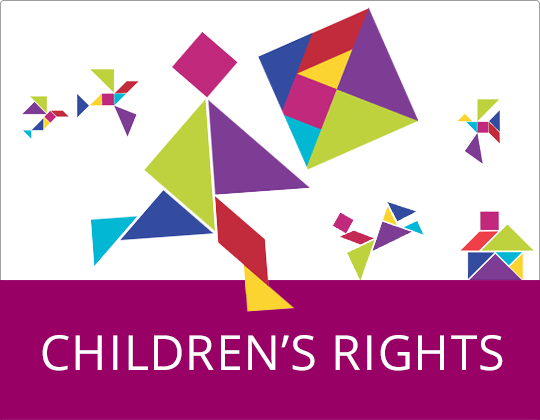Joint European Union-Council of Europe Child-friendly Justice Project

By aligning with priorities of the EU Strategy on the Rights of the Child and the European Child Guarantee and the Council of Europe Strategy for the Rights of the Child (2022-2027), the project strives to ensure that children’s rights are not only recognised but actively upheld throughout their interactions with the justice system. In this regard, the project facilitates the practical implementation of the Guidelines of the Committee of Ministers of the Council of Europe on child-friendly justice aiming to support the set-up of national justice systems which guarantee the respect and the effective implementation of all children’s rights at the highest attainable level before, during and after judicial proceedings. The Council of Europe’s Child-Friendly Justice Assessment Tool, which will operationalise the Guidelines of the Committee of Ministers of the Council of Europe on child-friendly justice, will be finalised and rolled out in the framework of the project.
Belgium, Poland and Slovenia have been selected as focus countries to pilot the implementation of activities at national and local levels to collect data, identify gaps, improve legislation, policies, and practices. Three additional countries, Greece, Hungary and Portugal have joined the project as valued partners. They will contribute their unique perspectives and insights to the project Steering Committee, enriching the overall approach and ensuring its effectiveness across diverse European contexts.
The project is co-funded by the European Commission/DG Justice and Consumers and the Council of Europe, and implemented by the Children’s Rights Division of the Council of Europe in close co-operation with partner countries from 1 January 2024 to 31 March 2026.

 Project news
Project news
 What do we aim to achieve?
What do we aim to achieve?

Strengthening legal and policy frameworks

Through the roll-out of the Council of Europe’s Child-Friendly Justice Assessment Tool, recommendations to adapt the legislative and policy framework in line with the Council of Europe’s and European Union’s standards related to child-friendly justice will be formulated.
Key deliverables

Capacity building

Capacities of specialised staff with respect to child-friendly procedures will be strengthened with the support of the Council of Europe’s Human Rights Education for Legal Professionals Programme (HELP) that includes a specific course on child-friendly justice.

Awareness raising

Awareness of children in contact with the law and their parents will be raised on children’s rights before, during and after judicial proceedings. A particular attention will be paid to parents/guardians with potential vulnerabilities such as disabilities, psychosocial distress, parents/guardians in contact with the law, etc.
 Who do we work with?
Who do we work with?
In Belgium, Poland, and Slovenia, our focus countries, we will work hand-in-hand with key decision makers and professionals. This will include collaboration with Ministries of Justice, legislators, judges, prosecutors, lawyers, law enforcement officers, social workers, psychologists, and child protection professionals. Through their combined expertise and collaborative efforts, the project will aim to identify areas for improvement and implement changes in legislation, policies, and practices at the national and local levels.
 Who will benefit from the project?
Who will benefit from the project?
The project targets legislators, parliamentarians, judges, prosecutors, lawyers, members of the police, bar associations, social services, psychologists, mediators, and professionals working with and for children in contact with the law. The target group also includes children in contact with the law and their parents. The ultimate beneficiaries are children, families, and civil society.
 Project documents
Project documents
Publications
Reports
- Final self-assessment on child-friendly justice in Belgium (French version)
- Final Conclusions and Recommendations for Belgium (French version)
- Final Conclusions and Recommendations for Belgium (Dutch version)



